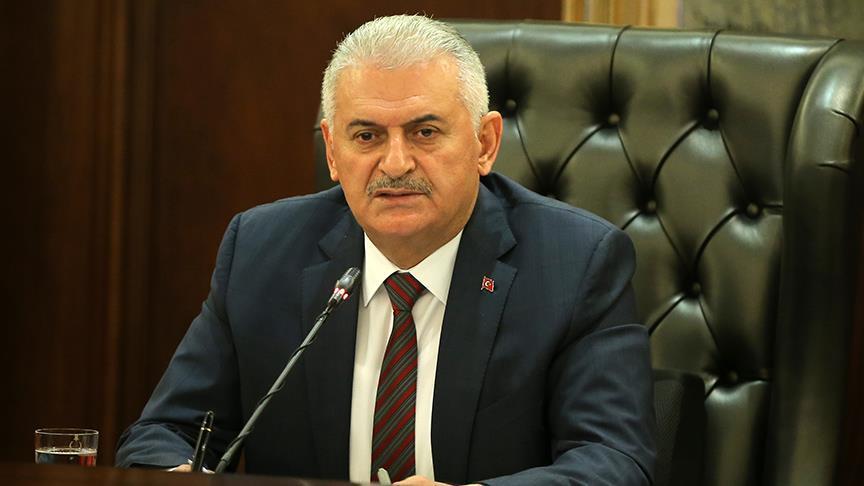The mutual appointment of ambassadors represents the culmination of the process of renewed ties
Turkey and Israel renewed ties in June following a six-year split over the attack on the Mavi Marmara humanitarian aid ship in May 2010, when Israeli commandos killed 10 Turkish activists on the Gaza-bound vessel
Bilateral ties came under particular strain in 2010 when Israeli commandos stormed the Mavi Marmara, a Turkish aid flotilla bound for the blockaded Gaza Strip, in international waters.
The attack on the six civilian vessels, which had been trying to break Israel’s blockade of Gaza, resulted in the death of nine Turkish citizens and left another 30 injured, one of whom succumbed to his injuries nearly four years later.
In the aftermath of the attack, Turkey demanded an official apology from Israel, compensation for the families of those killed, and the lifting of Israel’s Gaza blockade, which since 2007 has remained under a crippling Israeli embargo.
In 2013, Israeli Prime Minister Benjamin Netanyahu voiced his regret to Turkey’s then-Prime Minister (now president) Recep Tayyip Erdogan over the attack.
Months of talks between the two countries finally bore fruit in August, with Turkey announcing a deal to start normalizing relations with Israel after the six-year hiatus.
Under the agreement, in August Israel paid $20 million in compensation to the families of the Mavi Marmara victims, and the two countries this week appointed ambassadors.
Turkey sends aid to Israel for extinguishing its wildfire
Israeli President Rivlin told Turkish President Erdogan that he had met the Turkish fire-fighting team earlier in the day and enthused about the tremendous service that its members had performed, according to Jerusalem Post.
In a step forward in the renormalization of relations with Ankara, Israeli President Reuven Rivlin on Sunday telephoned Turkish President Recep Tayyip Erdogan to thank him for Turkey’s assistance in helping to quench the blaze of fires that swept across the country in recent days.
“I want to thank you from the depth of my heart for your decision to send this very valuable help to us in fighting the fires,” he told the Turkish president.
“Normal relations between Turkey and Israel are of great importance to the whole region,” Erdogan said, adding that he looked forward to further cooperation in areas of natural gas and other forms of energy. Discussions between the ministries of energy of both countries had borne fruit, he said.
Turkey had sent three firefighting planes to Israel to help extinguish wildfires that tore across the country this week, the country’s Forestry and Water Affairs Minister Veysel Eroglu said, according to Anadolu Agency.
“Forest fires are really troubling,” Eroglu said. “Thankfully, we have great firefighting equipment.”
The minister said Turkey had sent firefighting teams to help put out fires that had erupted in Israel several years ago.
“Now, hopefully, our firefighting planes will also put this fire out as well,” he added.
The Turkish role in Gaza
Yuval Steinitz told reporters after talks with his Turkish counterpart, Berat Albayrak, that the two sides also discussed the issue of Turkey supplying electricity and other forms of energy to the Palestinians in Gaza and the West Bank.
“Israel is welcoming any involvement of Turkey in improving the lives of ordinary people in Gaza,” Steinitz said. “We will do our best in order to enable this.”
Turkey and Israel reached an agreement in June to normalize ties and end acrimony caused by an Israeli naval raid on a Turkish aid ship trying to breach Israel’s blockade of Gaza in 2010.
Under the reconciliation deal, Israel agreed to compensate the families of the victims while Turkey agreed not to hold Israeli nationals criminally liable for the incident.
Steinitz said the two countries “agreed to establish immediately a dialogue to examine the possibility and the feasibility” of the natural gas pipeline project. He said Israel was considering other pipeline projects but said the “Turkish option” was an “important” one.
Gas pipeline from Israel to Turkey, Europe
Israel and Turkey are discussing the building of a pipeline that would carry Israeli natural gas to Turkey and onward to European markets, Israel’s energy minister said , during a first visit by an Israeli minister since the countries ended a six-year rift this summer, according to Seattle Times.
A pipeline from Israel to Turkey, which would then convey gas to Europe, is just one of the many export options that Israel is considering as development is set to begin on the country’s 613-billion-cubic-meter Leviathan reservoir. Also under consideration is a much longer, deep-sea pipeline to Cyprus, which would connect through another pipeline to Greece and then on to Italy. Export options to Egypt are also being reviewed, according to Jerusalem Post.



